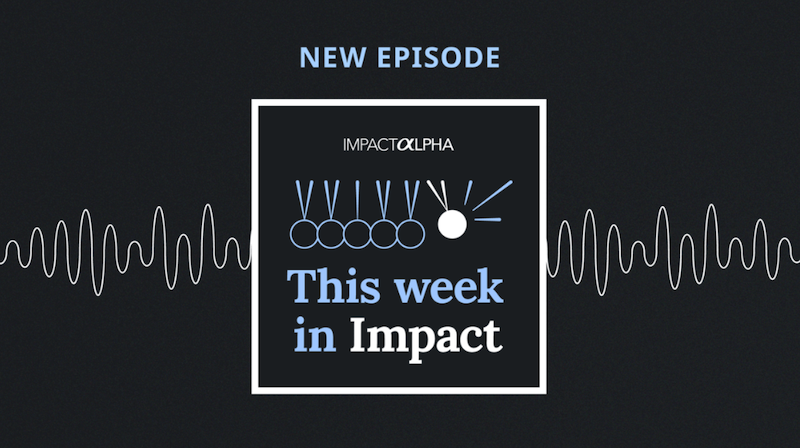ImpactAlpha – Feb. 6 – The state of Texas has banned Barclay’s from underwriting municipal bond deals in the state. The reason: The bank’s adherence to environmental, social, and governance, or ESG principles.
The ousting of the British bank is the latest strike by conservative lawmakers against financial institutions that consider ESG factors in their investing decisions.
Texas and other states, including Florida, Alabama and Wyoming, have now banned or limited major banks from doing business with public entities in their states.
Barclays was banned from Texas for being what state Attorney General Ken Paxton calls a “fossil fuel boycotter” just months after the bank drew protests for financing oil and gas extraction. Citi last year exited the muni market altogether after being banned in Texas for “discriminating” against firearms companies.
The enduring popularity of such tactics by red-state legislators spell challenges for the muni market.
New Hampshire Republicans last month proposed a law that would bar state funds from going to firms that manage capital “with any regard whatsoever based on environmental, social, and governance (ESG) criteria” and make it a felony to knowingly violate the order, as The Atlantic reports.
Shifting costs
The estimated costs exacted by the anti-ESG campaigns on municipal bond issuers in additional underwriting costs topped a billion dollars as of early 2023. The authors of the paper that contained those numbers plan to update their analysis in the coming months, they confirmed to ImpactAlpha.
“It’s very clear that anti-ESG is a winning strategy politically for legislators in red states,” said Justin Marlowe, the director of the Center for Municipal Finance at the University of Chicago, and editor-in-chief of Municipal Finance Journal.
Politicians advocating anti-ESG stances find receptive audiences in disparate constituencies, Marlowe pointed out, including those who object to the climate transition, as well as those inclined toward culture wars.
But Marlowe thinks another reason the trend has persisted is that in most cases, the costs borne by individual municipalities are relatively low. Even if Texas bans big multinationals like Barclays and JP Morgan, it still has a broad bench of powerhouse regional banks able to underwrite bond deals, he pointed out.
More to the point, Marlowe said, “a lot of the borrowing costs are going to be borne by bluer parts of the state. It’s not (state legislators’) constituents that will pay higher costs.”
In Texas, for example, bond issuances are more frequent in Democratic-leaning Houston and Austin. For now, Marlowe says, city officials aren’t willing to speak up about how those state actions are hurting them.
What city officials “are doing is really bolstering their investor relation programs,” he said. “They will continue to build out a climate adaptation apparatus. They see the audience for their message as investors, not state legislators.”
The anti-ESG fervor could nudge some municipalities to borrow money directly from banks or other lenders, rather than tapping the municipal bond market. That would allow them to circumvent the recent state-level legislation, Marlowe noted. But “direct placements” or “private placements” have less transparency than the bond market and often incur higher borrowing costs.












